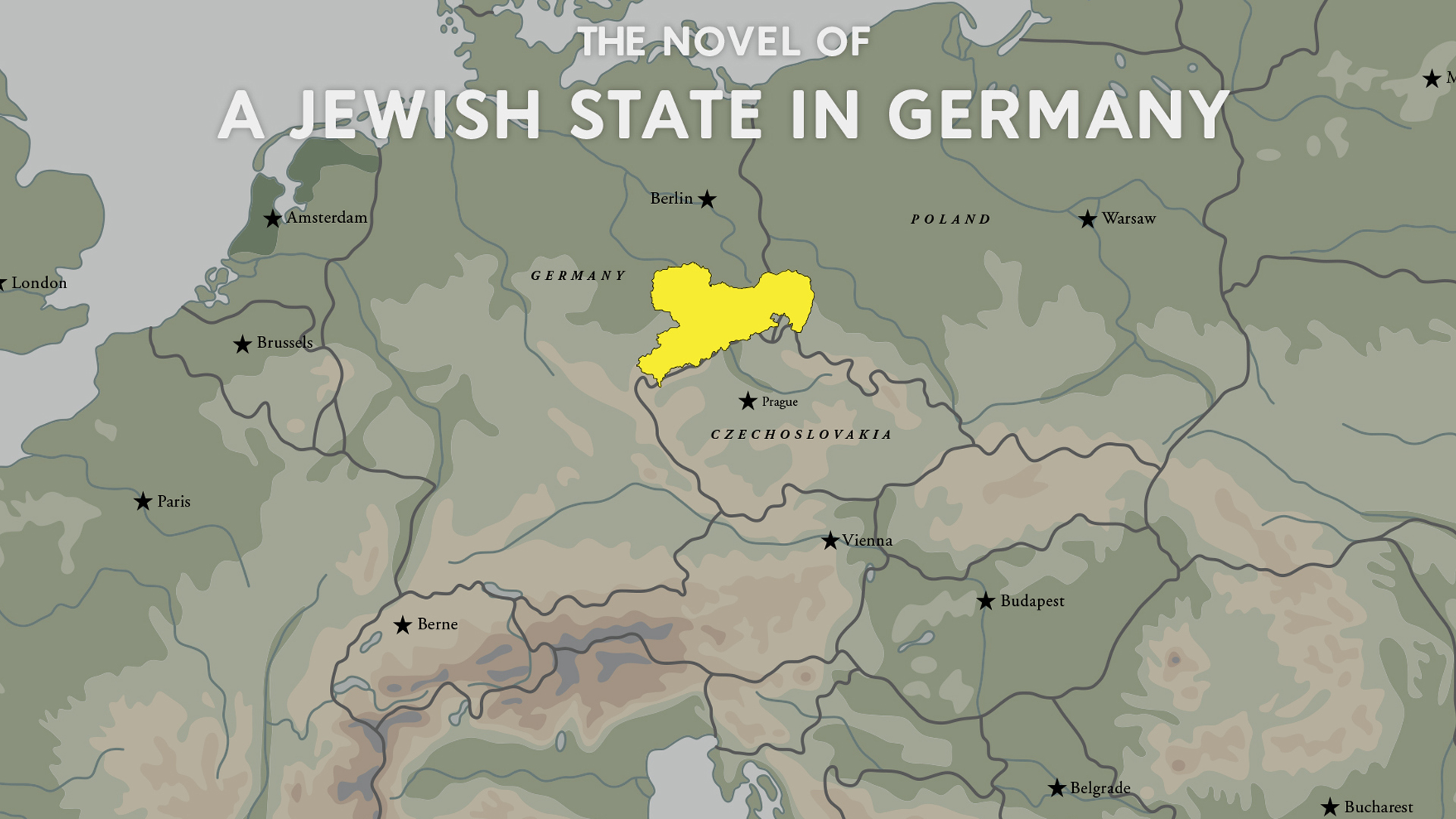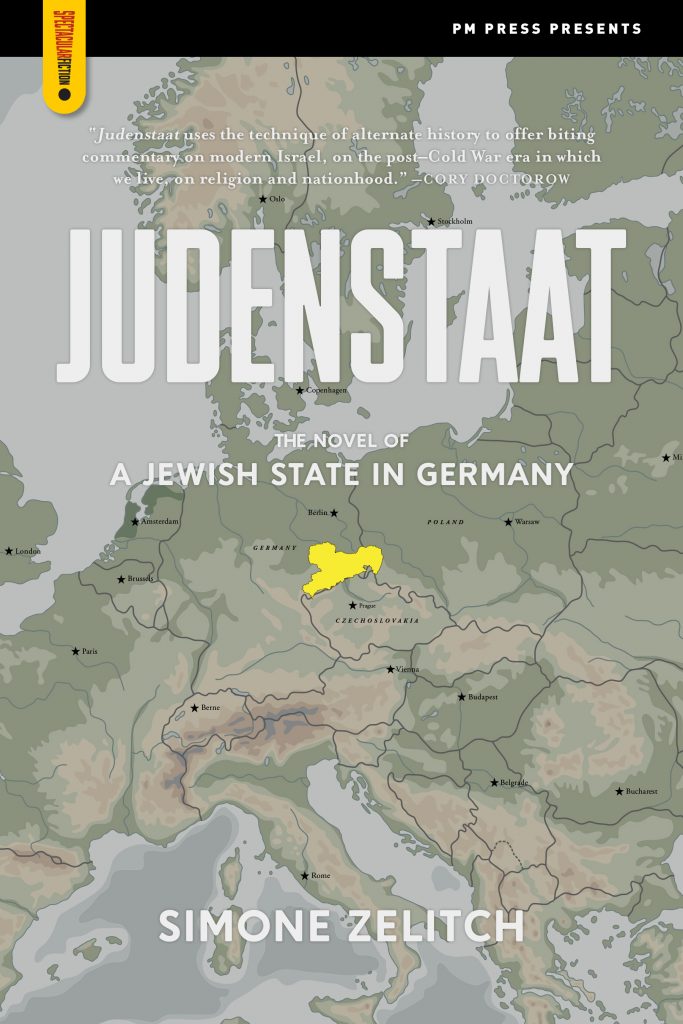By Gin Jenny
Reading the End
December 12th 2016
In Simone Zelitch’s book Judenstaat (Tor, 2016), no Jewish state was created in territory that had once belonged to the Ottoman Empire. Instead, Judenstaat was created in Saxony, bordering Germany, Poland, and Czechoslovakia. Forty years later, documentary filmmaker Judit Klemmer is creating a film about the state’s creation, while she is haunted by memories of her husband Hans, a Saxon conductor shot years ago as he conducted the National Symphony for the first time. When Judit receives a note saying simply They lied about the murder, she is plunged into a world of conflicting histories and conspiracy.
So before I dive into talking about Judenstaat, let me say up front that I do not know much of anything about Israel and Palestine. One of these days I am going to have enough time to really dig deep into what’s going on over there, and at that time I will form an opinion, and hopefully it will be a non-stupid opinion. For now, I don’t know enough about it to speak intelligently, and I therefore cannot say anything about how (or even if, frankly) Judenstaat‘s reality speaks to that of our own world.
I also do not have more than a high-schooler’s grasp on World War II history. As I was finishing this book, there was a whole uproar on Twitter over a dude who was equating USSR treatment of Jews to Nazi treatment of Jews. Soviet anti-Semitism comes up in this book, and here again, I simply don’t have the historical background knowledge to be able to say whether Zelitch does a good job of treating real-world history in this work of alternate history. So if you have views about this in relation to Judenstaat, and you feel like popping into the comments and telling me about them, I’d love you to do that.
(Because this is fundamentally who I am as a person, I went hunting for some further background information and added some books to my intimidating nonfiction TBR list. That list is very long however. My quest to know everything will last me many years.)
That very long disclaimer is to say that I can only speak to Judenstaat insofar as it is kind of a murder mystery and very much a book about what nations permit their people to remember. And on those fronts, I think that it succeeds admirably. As Judit uncovers more footage from her country’s past, she realizes more and more that the tidy version of history in which she has always believed, the narrative of her country’s creation and the values on which it claims to be founded, is flawed and incomplete. Did I find this to be terrifyingly relevant as our country awaits the presidency of a bigoted demagogue with no experience in government who got elected anyway because white America doesn’t believe in equality nearly as much as we say we do? Yes, okay? Yes, I super did.
(I am finding all my books to be terrifyingly relevant lately. Selection bias or apophenia? YOU DECIDE.)
Zelitch sensibly doesn’t subject us to too many visits from the Exposition Fairy, which was great for the murder mystery but not so good for my poor brain as I tried to figure out Judit’s country timeline and what the official history was versus what she was discovering as she made her film. If you are planning to read Judenstaat, I recommend carving out some time to sit down and really get into it. Even knowing that I’d missed some details, though, this was a really terrific read. I kept thinking of all the countries where history that doesn’t fit tidily into a linear narrative of progress towards shared national values is discarded and discredited. Like: We shouldn’t be able to talk about our country’s founding, or the liberal idea of ourselves as “a nation of immigrants,” without addressing the fact that these ideas are predicated on the violent destruction of American Indians.
Or like (if you want to look at something a bit farther away): I read Anjan Sundaram’s Bad News earlier this year, which talked about (among other things) the fact that Paul Kagame — the hero who ended the Rwandan genocide — also invaded Congo and carried out mass atrocities against Hutu refugees in that country. In Rwanda, Sundaram reports, you can never talk about that. You can talk about how Kagame saved the country. You can talk about the horrors of the genocide against the Tutsis. History that doesn’t fit into that narrative isn’t welcome.
Judenstaat teaches Judit (and reminds us) that history is never so simple. Nobody can hold power and keep their hands clean. We need to have heroes, but even more (argues the book, and I argue it, too), we need to know the truth about them. We need to speak — shout! — the truth about their failures so that we can avoid repeating them. Even saying that is probably a simplification of Zelitch’s message: She resists easy answers in this book, which offers no tidy solutions but only questions upon questions upon questions.
So. You know. My favorite kind of thing. YMMV.







